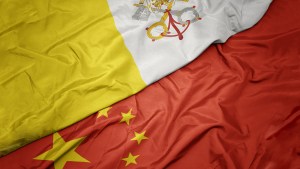Lenten Campaign 2025
This content is free of charge, as are all our articles.
Support us with a donation that is tax-deductible and enable us to continue to reach millions of readers.
The much anticipated trial of Cardinal Joseph Zen and five others was delayed this week, when the presiding judge tested positive for COVID-19. The trial was scheduled to begin Monday, September 19, and conclude Friday, September 23, but now the proceedings are expected to be pushed back at least two days.
Al Jazeera reports that Cardinal Zen is one of six defendants who are accused of “colluding with foreign forces,” by organizing the 612 Humanitarian Relief Fund to help pro-democracy activists pay their legal bills. The charges came when it was determined that the defendants, who are all allegedly trustees of the fund, did not register with the Chinese government.
612 Humanitarian Relief Fund
On the fund’s dedicated website, it states that it was created in June 2019 to lend aid to persons who were injured, arrested, attacked, or threatened during the Anti-ELAB protests held earlier that month. The 612 Humanitarian Relief Fund has been defunct since 2021.
Cardinal Zen, 90, was arrested in May for his connection to the fund and has been free on bail. According to CNA, his fellow defendants include singer-activist Denise Ho, lawyer Margaret Ng, scholar Hui Po-keung, activist Sze Ching-wee, and former legislator Cyd Ho. All of the defendants have pleaded not guilty to the charges.
Basic Law
The defense is expected to argue that the defendants’ actions were in line with Hong Kong’s Basic Law, a legal framework that was installed after the British occupation of the city ceased, in 1997. The Basic Law protects certain basic human rights, such as freedom of assembly and freedom of speech, as well as setting guidelines for governance of Hong Kong. This law, however, does not extend beyond the city and is often at odds with mainland Chinese law.
If the defendants are found guilty they could face fines of up to $1,750 or even a light jail sentence. The sentences could be much harsher if Hong Kong decides to indict them under its national security laws, established in 2020. The Hong Kong national security laws have criminalized anything Beijing determines to be “foreign collusion.” Prosecutors, however, have yet to level such charges against any of the defendants.

